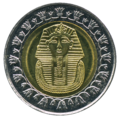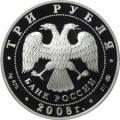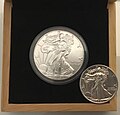Portal:Numismatics
The Numismatics Portal

Numismatics is the study or collection of currency, including coins, tokens, paper money, medals, and related objects.
Specialists, known as numismatists, are often characterized as students or collectors of coins, but the discipline also includes the broader study of money and other means of payment used to resolve debts and exchange goods.
The earliest forms of money used by people are categorised by collectors as "odd and curious", but the use of other goods in barter exchange is excluded, even where used as a circulating currency (e.g., cigarettes or instant noodles in prison). As an example, the Kyrgyz people used horses as the principal currency unit, and gave small change in lambskins; the lambskins may be suitable for numismatic study, but the horses are not.[dubious – discuss] Many objects have been used for centuries, such as cowry shells, precious metals, cocoa beans, large stones, and gems. (Full article...)
Selected article -

Banknotes of Scotland are the banknotes of the pound sterling that are issued by three Scottish retail banks (Bank of Scotland, the Royal Bank of Scotland and Clydesdale Bank) and in circulation in Scotland. The Bank of Scotland, the oldest bank operating in the country, was the first bank in Europe to successfully print its own banknotes in 1695. The issuing of banknotes by retail banks in Scotland is subject to the Banking Act 2009, which repealed all earlier legislation under which banknote issuance was regulated, and the Scottish and Northern Ireland Banknote Regulations 2009. Currently, three retail banks are allowed to print notes for circulation in Scotland: Bank of Scotland, Royal Bank of Scotland, and Clydesdale Bank.
Scottish banknotes are unusual, first because they are issued by retail banks, not government central banks, and second, because they are not legal tender anywhere in the United Kingdom. Scottish bank notes are not legal tender even in Scotland, where, in law, no banknotes, even those issued by the Bank of England, are defined as legal tender. Formally, they are classified as promissory notes, and the law requires that the issuing banks hold a sum of Bank of England banknotes or gold equivalent to the total value of notes issued. (Full article...)
Selected image
Did you know...

- ...that with its two-dollar coin (reverse pictured), Newfoundland was the only British colony to issue circulating gold coinage?
- ...that Mount Burgess is nicknamed the Ten Dollar Mountain because it was featured on Canadian currency?
- ...that the American Buffalo gold bullion coin was the first .9999 fine 24-carat gold coin released by the United States Mint?
- ...that the Alabama centennial half dollar was the first commemorative coin minted with the image of a living individual?
- ...that Aksumite currency was the only native coinage to be issued in Africa without direct influence by an outside culture like Roman, Greek, etc...?
Related portals
Selected coin -
The Canadian Silver Maple Leaf is a silver bullion coin that is issued annually by the Government of Canada since 1988. It is produced by the Royal Canadian Mint.
The Silver Maple Leaf is legal tender. The face value is 5 Canadian dollars. The market value of the metal varies, depending on the spot price of silver. The standard version has a weight of 1 troy ounce (31.1 grams). (Full article...)
Selected banknote image -
General images -
Numismatic terminology
- Bullion – Precious metals (platinum, gold and silver) in the form of bars, ingots or plate.
- Error – Usually a mis-made coin not intended for circulation, but can also refer to an engraving or die-cutting error not discovered until the coins are released to circulation. This may result is two or more varieties of the coin in the same year.
- Exonumia – The study of coin-like objects such as token coins and medals, and other items used in place of legal currency or for commemoration.
- Fineness – Purity of precious metal content expressed in terms of one thousand parts. 90% is expressed as .900 fine.
- Notaphily – The study of paper money or banknotes.
- Scripophily – The study and collection of stocks and Bonds.
WikiProjects
Numismatic topics
Money - Coins - Banknotes - Electronic money - Exchange rate - Legal tender - Clubs - Terminology
Ancient currency: Asia - Byzantium - Greece - Primitive Money - Roman - Indian coinage
Modern currency: Africa - The Americas - Asia and the Pacific - Europe - Bullion coins - Challenge coin - Commemorative coins - Token coins
Economics: Banking - Bonds - Cheques - Credit Cards - Fiat currency - Gold standard - Mints - Monetary union - Reserve currency - Stocks
Production: Coining (machining) - Designers - Die making - Mint (coin) • Coinage Metals: Aluminum - Bronze - Copper - Gold - Platinum - Silver - Tin
Subcategories
Most traded currencies
| Currency | ISO 4217 code |
Symbol or Abbrev.[2] |
Proportion of daily volume | Change (2019–2022) | |
|---|---|---|---|---|---|
| April 2019 | April 2022 | ||||
| U.S. dollar | USD | $, US$ | 88.3% | 88.5% | |
| Euro | EUR | € | 32.3% | 30.5% | |
| Japanese yen | JPY | ¥, 円 | 16.8% | 16.7% | |
| Sterling | GBP | £ | 12.8% | 12.9% | |
| Renminbi | CNY | ¥, 元 | 4.3% | 7.0% | |
| Australian dollar | AUD | $, A$ | 6.8% | 6.4% | |
| Canadian dollar | CAD | $, Can$ | 5.0% | 6.2% | |
| Swiss franc | CHF | Fr., fr. | 4.9% | 5.2% | |
| Hong Kong dollar | HKD | $, HK$, 元 | 3.5% | 2.6% | |
| Singapore dollar | SGD | $, S$ | 1.8% | 2.4% | |
| Swedish krona | SEK | kr, Skr | 2.0% | 2.2% | |
| South Korean won | KRW | ₩, 원 | 2.0% | 1.9% | |
| Norwegian krone | NOK | kr, Nkr | 1.8% | 1.7% | |
| New Zealand dollar | NZD | $, $NZ | 2.1% | 1.7% | |
| Indian rupee | INR | ₹ | 1.7% | 1.6% | |
| Mexican peso | MXN | $, Mex$ | 1.7% | 1.5% | |
| New Taiwan dollar | TWD | $, NT$, 圓 | 0.9% | 1.1% | |
| South African rand | ZAR | R | 1.1% | 1.0% | |
| Brazilian real | BRL | R$ | 1.1% | 0.9% | |
| Danish krone | DKK | kr., DKr | 0.6% | 0.7% | |
| Polish złoty | PLN | zł, Zl | 0.6% | 0.7% | |
| Thai baht | THB | ฿, B | 0.5% | 0.4% | |
| Israeli new shekel | ILS | ₪, NIS | 0.3% | 0.4% | |
| Indonesian rupiah | IDR | Rp | 0.4% | 0.4% | |
| Czech koruna | CZK | Kč, CZK | 0.4% | 0.4% | |
| UAE dirham | AED | د.إ, Dh(s) | 0.2% | 0.4% | |
| Turkish lira | TRY | ₺, TL | 1.1% | 0.4% | |
| Hungarian forint | HUF | Ft | 0.4% | 0.3% | |
| Chilean peso | CLP | $, Ch$ | 0.3% | 0.3% | |
| Saudi riyal | SAR | ﷼, SRl(s) | 0.2% | 0.2% | |
| Philippine peso | PHP | ₱ | 0.3% | 0.2% | |
| Malaysian ringgit | MYR | RM | 0.2% | 0.2% | |
| Colombian peso | COP | $, Col$ | 0.2% | 0.2% | |
| Russian ruble | RUB | ₽, руб | 1.1% | 0.2% | |
| Romanian leu | RON | —, leu | 0.1% | 0.1% | |
| Peruvian sol | PEN | S/. | 0.1% | 0.1% | |
| Other currencies | 2.0% | 2.4% | |||
| Total | 200.0% | 200.0% | |||
References
- ^ Triennial Central Bank Survey Foreign exchange turnover in April 2022 (PDF) (Report). Bank for International Settlements. 27 October 2022. p. 12. Archived (PDF) from the original on 2022-10-27.
- ^ "Currency Units". Editorial Style Guide (PDF). World Bank Publications. p. 134–139.
Web resources
- NumisWiki
- International Association of Professional Numismatists
- American Numismatic Association
- American Numismatic Society
- British Numismatic Association
- American Vecturist Association
- Challenge Coin Association
- Numismatic Museum of Athens, Greece
- The Perth Mint Australia
- Central Mint of China
- Royal Mint
- The French Mint
- United States Mint
- Bank of Russia
- Royal Canadian Mint
- Exact Change numismatic software
Things you can do
|
|
 |
Here are some tasks awaiting attention:
|
Associated Wikimedia
The following Wikimedia Foundation sister projects provide more on this subject:
-
Commons
Free media repository -
Wikibooks
Free textbooks and manuals -
Wikidata
Free knowledge base -
Wikinews
Free-content news -
Wikiquote
Collection of quotations -
Wikisource
Free-content library -
Wikiversity
Free learning tools -
Wiktionary
Dictionary and thesaurus


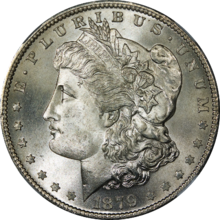


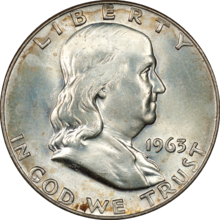
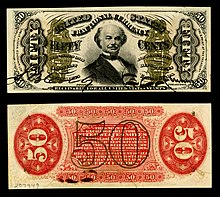


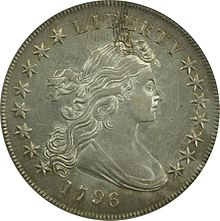





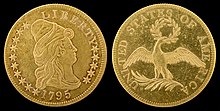






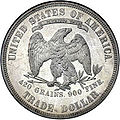






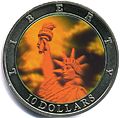



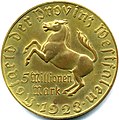



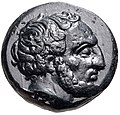
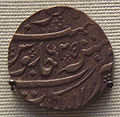
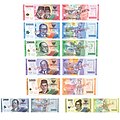











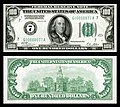



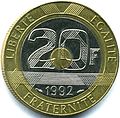




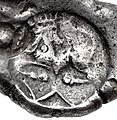
![Image 47Chinese round coins, Eastern Zhou dynasty – Warring States Period, c. 300–220 BC. Four Hua (四化, 30mm, 6.94 g). Legend Yi Si Hua ([City of] Yi Four Hua). (from Coin)](http://up.wiki.x.io/wikipedia/commons/thumb/f/f9/CHINA%2C_Eastern_Zhou_dynasty_-_Warring_States_Period._State_of_Q%C3%AD._City_of_Yi._Circa_300-220_BC.jpg/120px-CHINA%2C_Eastern_Zhou_dynasty_-_Warring_States_Period._State_of_Q%C3%AD._City_of_Yi._Circa_300-220_BC.jpg)



